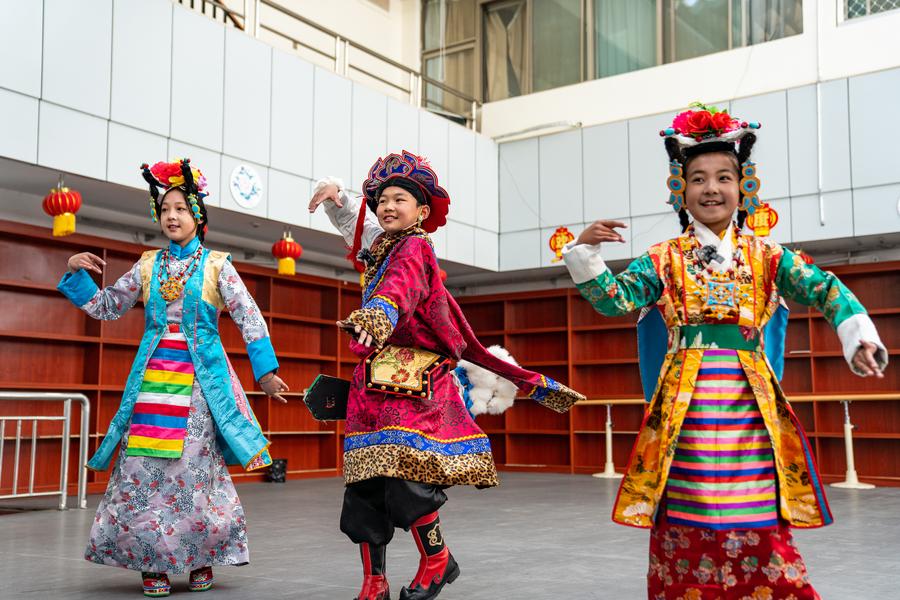
LHASA: While many children choose hobbies like playing the piano, swimming or computer programming, 13-year-old Tenzin Donden stands out with his rare passion for Tibetan opera — an art form with a history of more than 600 years.
Considered a living fossil of Tibetan culture, Tibetan opera blends talking, singing, acting, dancing and literature. It was included on the UNESCO Representative List of the Intangible Cultural Heritage of Humanity in 2009.
Every weekend, Tenzin Donden travels for an hour on his mother’s electric bike to reach the people’s art hall of the Xizang Autonomous Region in Lhasa, the regional capital. There, he dedicates two and a half hours to honing his Tibetan opera performance skills.
His fascination with the style of opera began when he was 3. Whenever his grandparents would travel from Lhunzhub County to downtown Lhasa, they would take him to Norbulingka, known as Lhasa’s “Summer Palace,” to watch opera performances.
“I was deeply fascinated by the art. It was so cool,” said the teenager, who aspires to become a professional Tibetan opera performer.
In 2015, the people’s art hall of Xizang launched free Tibetan opera courses, nurturing approximately 200 students like Tenzin Donden.
“Mastering Tibetan opera requires a blend of acting, singing and dancing skills. It’s not easy,” said 63-year-old Pasang, a renowned performer who teaches at the people’s art hall.
“Any child with an interest is welcome to join,” said Phurjung, 64, who is also a teacher. He remembers a student from the Han ethnic group who once attempted to learn the opera style but had to abandon his training due to the high proficiency in the Tibetan language that was required.
Last year, Tenzin Donden and 11-year-old Chimed Drolkar performed in “Brothers Donyo and Dondrup,” marking the debut of a children’s stage play presented as Tibetan opera in Xizang.
It tells the story of two princes, who are half brothers through their father, reuniting after many life-or-death challenges.
Chimed Drolkar started learning Tibetan opera at the age of 4. She played multiple roles in “Brothers Donyo and Dondrup,” and Tenzin Donden played Wonbar, the opera’s narrator, saying that he found the role to be the most challenging and enjoyable of all the roles he had ever performed.
“Tibetan opera is full of fantasy and mystery, much like the foreign fairy tales that I have read, like ‘Snow White and the Seven Dwarfs’ and ‘The Little Mermaid,’” Chimed Drolkar said.
In “Sukyi Nyima,” another Tibetan opera, Chimed Drolkar and Tenzin Donden collaborated once again, respectively portraying a fairy and a hunter. The pair recently won a prestigious national award, after their opera stood out from a pool of over 100 productions in such genres as Sichuan Opera, Peking Opera and Kunqu Opera. –Agencies




